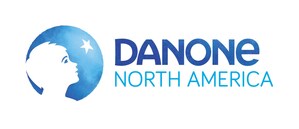Study from Danone North America Finds That Food Accessibility Is Rising on the U.S. Consumer Agenda
BROOMFIELD, Colo. and WHITE PLAINS, N.Y., June 27, 2023 /PRNewswire/ -- Danone North America, a leading purpose-driven food and beverage company, today released a new study revealing that Americans believe food accessibility is one of the most important issues now facing the nation – on par with or ahead of access to healthcare, climate and jobs. Additionally, one in four Americans do not have a positive outlook when it comes to the trajectory of nutritious food accessibility – and are looking at both public and private sectors to take action.
Danone North America's State of Nutrition Equality Study analyzed the attitudes, beliefs and expectations around food and nutrition access of more than 4,000 Americans, across ethnicity, region, age and income level. The study found that most Americans (60%) do not eat what they would describe as very nutritious foods, due to significant economic and physical barriers. Those surveyed believe these gaps have a ripple effect, impacting their families, communities and the country at-large, where diet-related diseases currently lead to more than one million preventable deaths annually.1
The study findings come amid continued economic pressures, and as expanded pandemic-era SNAP benefits are ending, causing as many as 15 million people2 to lose coverage in the coming months. In line with its mission, Danone has been on a journey to continue to more deeply understand the current perceptions, values and pain points related to consumer nutrition in the U.S. As part of this, Danone North America commissioned the study so it can better deliver on its mission every day.
"Danone believes in a future where nutrition is more available, accessible and equitable—our vision is for a more inclusive state of nutrition where consumers have agency over their health, through food," said Shane Grant, Group Deputy CEO, Danone. "At Danone, our mission is to bring health through food to as many people as possible, but we cannot act alone. Improving nutrition equality at scale will require partnership across sectors for transformational change."
Key Findings and Statistics from Danone North America's State of Nutrition Equality Study
Access to Nutritious Foods Is Imperative to Improving Quality of Life, Yet Economic Pressures Are Taking a Toll
Almost all respondents (87%) ranked food accessibility (availability, affordability, quality, security) alongside healthcare (87%), the economy (88%) and cost of living (92%) as one of the most important issues facing society today.
- Jobs/unemployment, political climate, environment and other topics ranked lower on the priority scale.
- Lower-income respondents feel that food accessibility is an even more pronounced issue (93%).
More than eight out of ten individuals believe that more access to nutritious foods would result in a higher quality of life, including feeling better, having more energy and overall improved physical health and well-being. Most who have cut back on purchases over the last few years say it has made it more difficult for them to maintain a healthy lifestyle (57%). Americans expressed they believe that more access to nutritious foods would also:
- Enhance childhood development (83%).
- Improve health disparities (82%).
- Reduce healthcare costs (81%).
The findings also point to an emerging relationship between mental health and nutrition. According to the survey data, Americans see mental health and nutrition as intertwined – 76% of respondents believe what they eat affects their mental/emotional state, and 78% believe their mental/emotional state affects what they eat. Younger generations, namely Gen Z and Millennials, are more likely to say their mental state affects what they eat when compared to older generations.
Food Influences and Priorities Range Across Multicultural Communities
When asked about the foods they eat, 60% or more of all audiences surveyed consider taste and price as the most important influencing factors. Black/African American (41%) and Asian American (47%) respondents also ranked health considerations within their top five factors.
The most important attributes when considering nutritious food varied by community:
- Black/African American respondents ranked "heart healthy" as the top priority, followed by "rich in vitamins/minerals" and "low sugar," respectively.
- Hispanic/Latino and Asian American respondents both ranked "rich in vitamins/minerals" and "low sugar" as their top two priorities.
- Across all respondents, yogurt/yogurt beverages were ranked as the top food considered to be nutritious. Multicultural respondents also identified dairy-free/plant-based milk products within their top five choices.
Affordability Is Just One of the Many Barriers Consumers Face – Along with Education, Safety and Stress
While 75% of people find it important to eat nutritious foods, less than 40% of Americans consider the foods they eat to be extremely or very nutritious, and this disparity is either the same or more significant for multicultural consumers. This gap is even more pronounced among low-income Americans – as many as seven out of ten reported that they do not eat a very nutritious diet.
Consumers believe that factors such as income (79%), region (61%) and education level (52%) impact their ability to access nutritious foods.
- More than one-third (34%) noted that personal barriers such as stress, anxiety, depression or eating disorders are preventing them from eating nutritious foods.
- Multicultural consumers are more likely to face barriers to accessing nutritious foods than the general population, commonly citing affordability and institutional barriers like government support.
- Physical barriers, such as lack of transportation and safety, remain a top barrier for Black/African American communities (43%).
The Nation Is Calling on Both Private and Public Sectors to Step Up
Americans are looking for a collaborative effort to improve access to nutritious foods3 and believe the responsibility falls equally on the public and private sectors. Consumers see several opportunities for food corporations and government entities to help make a meaningful impact – laying out a roadmap for change:
- More than six out of ten Americans would like food companies to support local food systems, develop affordable products and provide education and resources to help inform healthier food choices.
- Multicultural communities expressed a higher likelihood to support brands that help address access to nutritious foods (79% of Hispanic/Latino consumers; 76% of Black/African Americans and 75% of Asian Americans).
- 61% of Americans believe emerging technologies like artificial intelligence and machine learning can help improve access to nutritious foods.
Danone in Action
As part of its Renew Danone strategy, the company recently reframed its sustainability journey, articulated around three pillars: Health, Nature and People & Communities. For each pillar, Danone defined a new set of priorities inclusive of mid to long-term objectives, focusing on where it can deliver the most impact and value. In line with its mission and included in the Health pillar, Danone has pledged to offer tastier and heather food and drinks, promote healthier choices, provide positive nutrition and hydration for a healthier life and invest in nutrition and hydration science and research. Key examples of how Danone is fulfilling its Health commitments include:
- At the White House Conference on Hunger, Nutrition and Health in September 2022, Danone North America announced a $22 million investment to improve access to, and availability of, nutritious and health-promoting foods by 2030, as well as partnering with retailers and healthcare professionals to educate consumers to drive evidence-based healthy eating behaviors and diet-related health outcomes. Currently, more than two-thirds of Danone North America's product portfolio meets the company's criteria for nutrient density. Danone is constantly enhancing its products to be healthier and to bring the right offerings, formats and entry points to channels that feed a diverse spectrum of communities.
- The Danone Institute North America supports initiatives that promote nutrition and sustainable food systems and provides seed funding for projects committed to nutrition and community health. To date, the institute has funded 15 projects and will have provided $500,000 in funding by 2025.
- Danone North America supports proposed WIC food package options and promotes the availability of healthier options in a variety of container sizes, including Danone yogurts. The company also supports the USDA's efforts to limit sugar and sodium levels offered to children in schools.
At the Aspen Ideas Festival (June 24-30), Danone North America will convene leaders from the public and private sectors who are on the frontlines of advancing nutrition in the U.S., to discuss tangible solutions that will help create a future where nutrition is more inclusive.
To learn more about Danone North America's action plans and its State of Nutrition Equality Study, visit DanoneNorthAmerica.com.
Survey Methodology
In partnership with Zeno Group, Danone North America fielded an online survey of 4,132 U.S. (including 1,049 "Gen Pop" respondents (defined as a group of individuals who reflect the actual demographic makeup of the U.S.), and multicultural Over Samples among 1,043 Black/A-A respondents, 1,026 AAPI respondents and 1,014 Hispanic/Latinx respondents) in May 2023. These results reflect the "Gen Pop" sample unless otherwise specified. The overall margin of error for the "Gen Pop" sample and each multicultural audience is +/- 3 percentage points at a 95% confidence level.
About Danone North America:
Danone North America is a purpose-driven company and an industry leader in the food and beverage category. As a Certified B Corporation®, Danone North America is committed to the creation of both economic and social value, while nurturing natural ecosystems through sustainable agriculture. Our strong portfolio of brands includes: Activia®, DanActive®, Danimals®, Dannon®, evian®, Happy Family® Organics, Horizon® Organic, International Delight®, Light + Fit®, Oikos®, Silk®, So Delicious® Dairy Free, STōK®, Two Good®, Wallaby® Organic and YoCrunch®. With more than 6,000 employees and 16 production locations across the U.S. and Canada, Danone North America's mission is to bring health through food to as many people as possible. For more information, visit www.danonenorthamerica.com/.
Danone North America is a Danone subsidiary.
Press Contacts
Nancy Eberhardt
Danone North America
[email protected]
Allison Pierce
Zeno Group
[email protected]
1 Food and Drug Administration (FDA)
2 Assistant Secretary for Planning and Evaluation (ASPE)
3 Nutritious Foods are defined in the study as food items that are nourishing, provide essential nutrients and provide health benefits when consumed as part of a balanced diet.
SOURCE Danone North America

WANT YOUR COMPANY'S NEWS FEATURED ON PRNEWSWIRE.COM?
Newsrooms &
Influencers
Digital Media
Outlets
Journalists
Opted In






Share this article